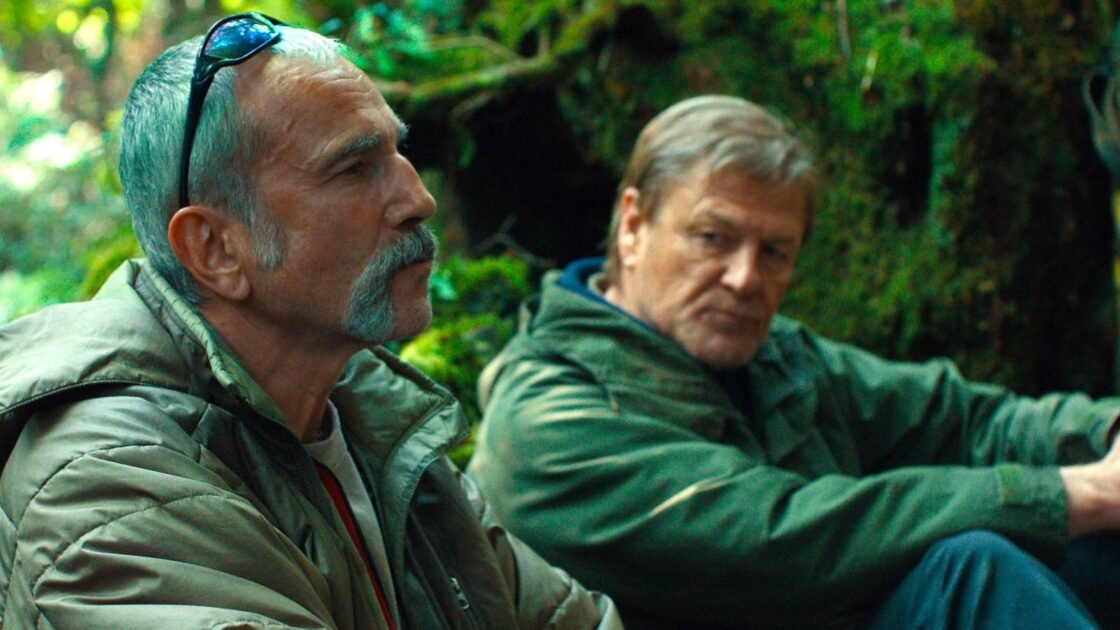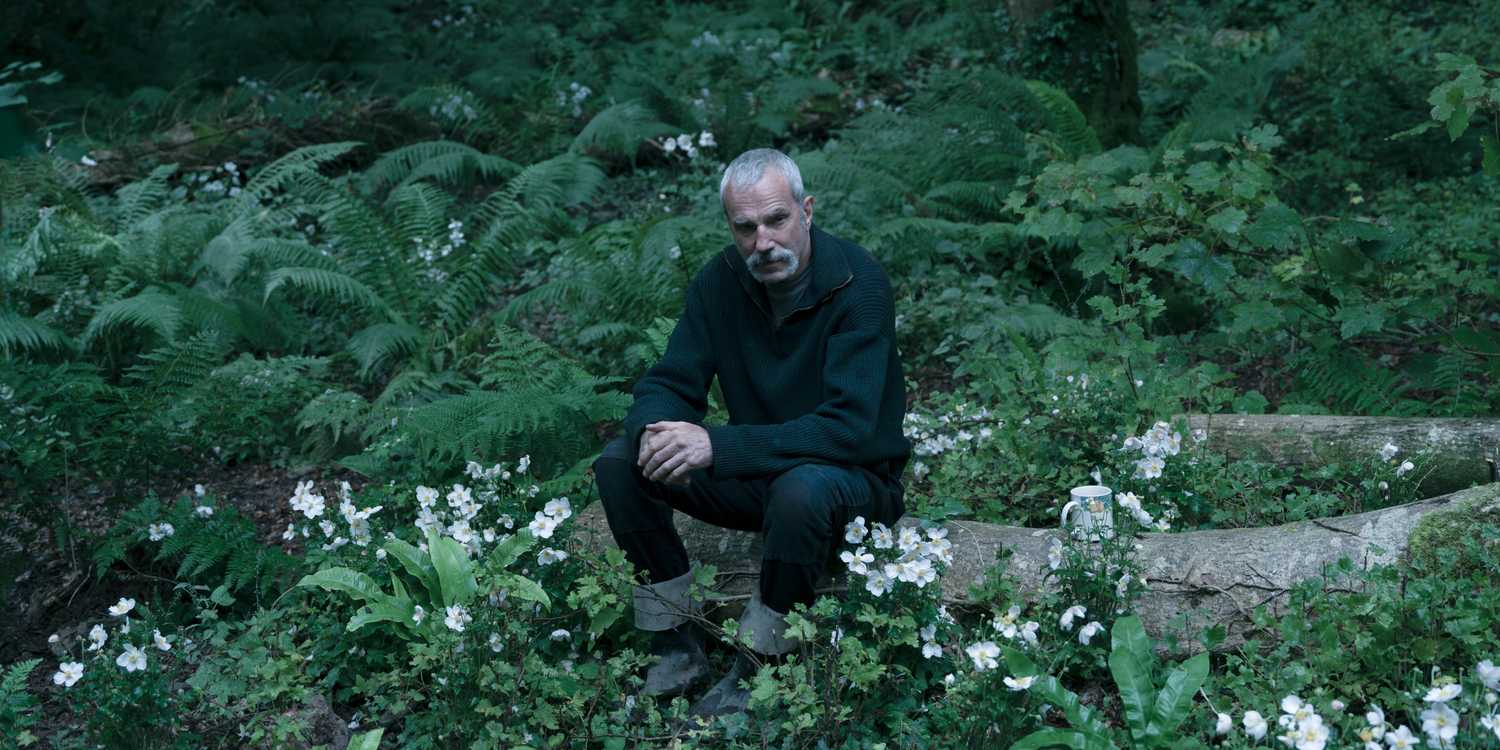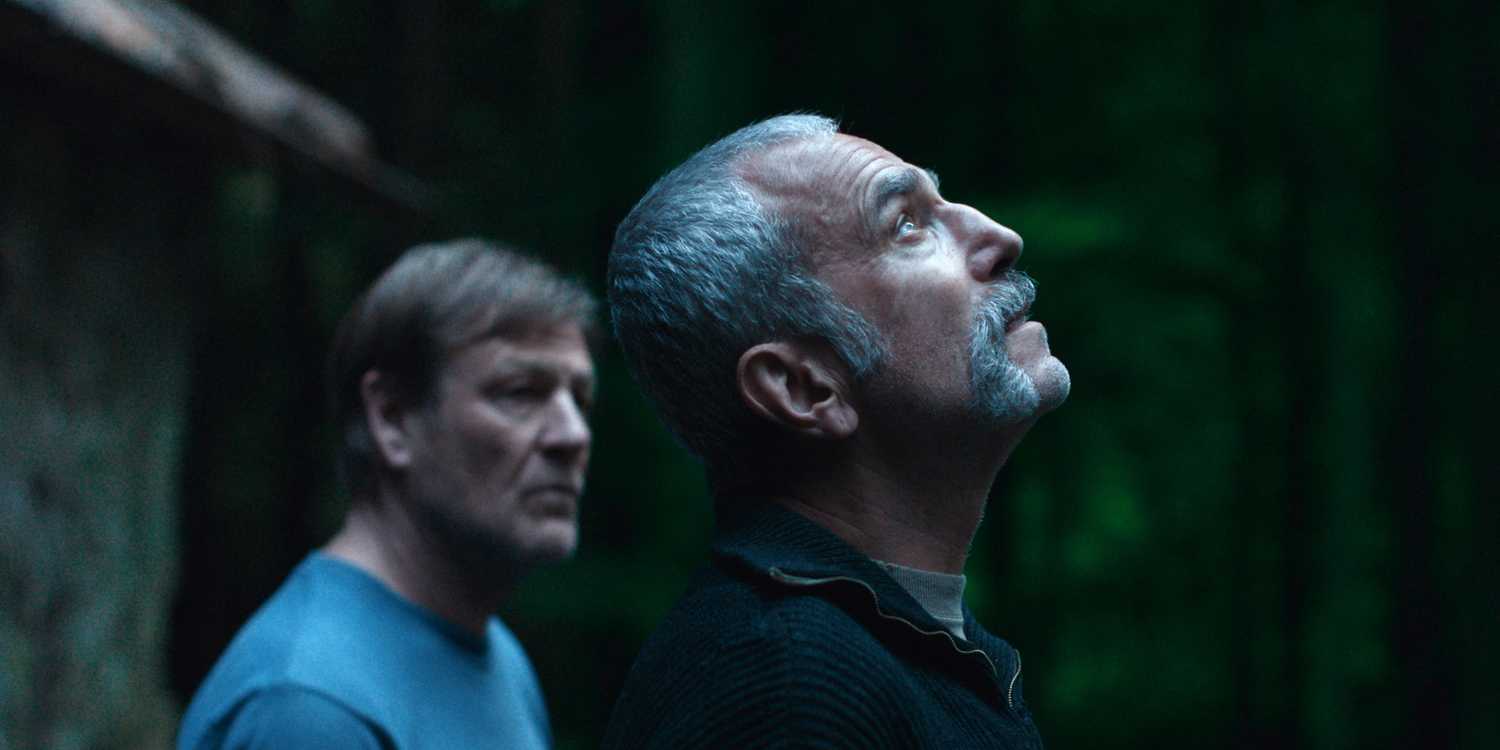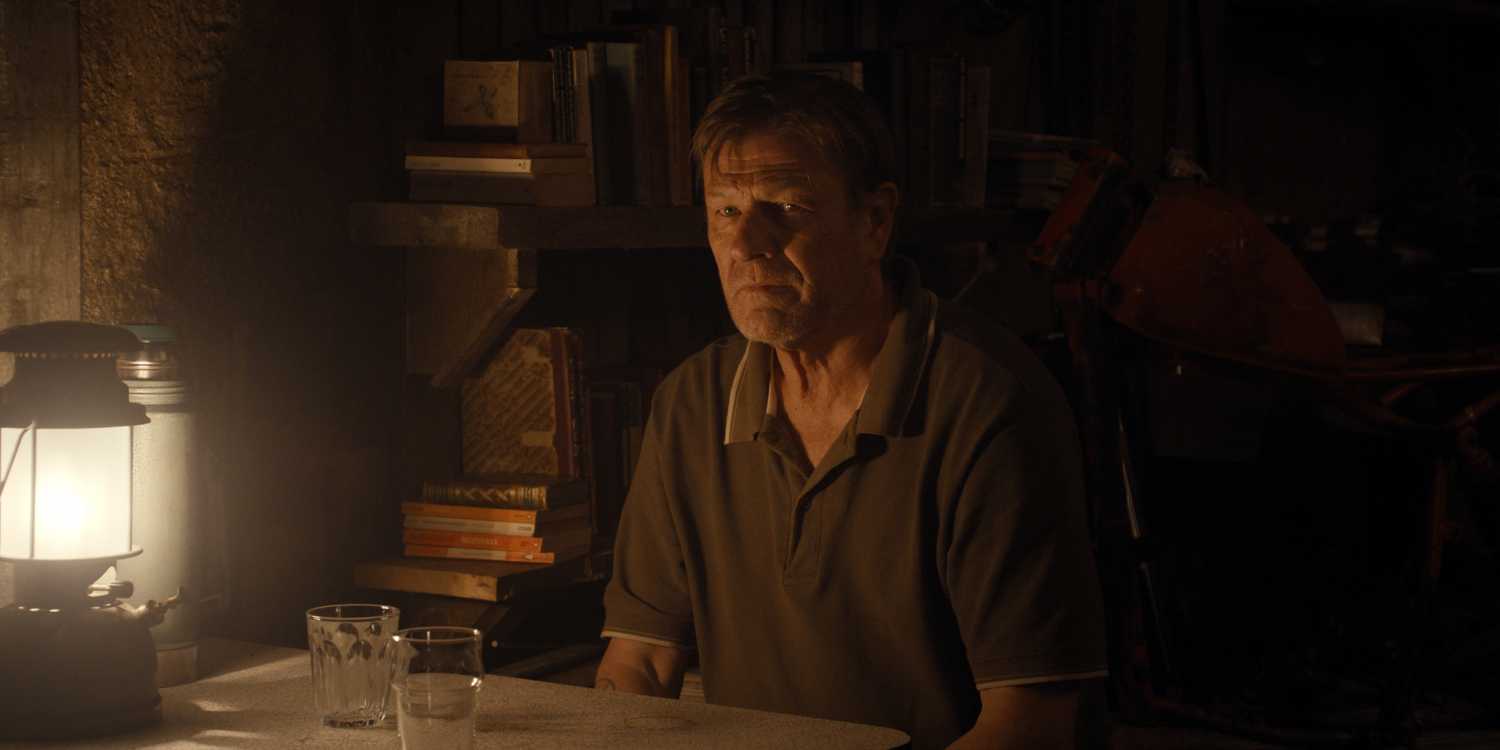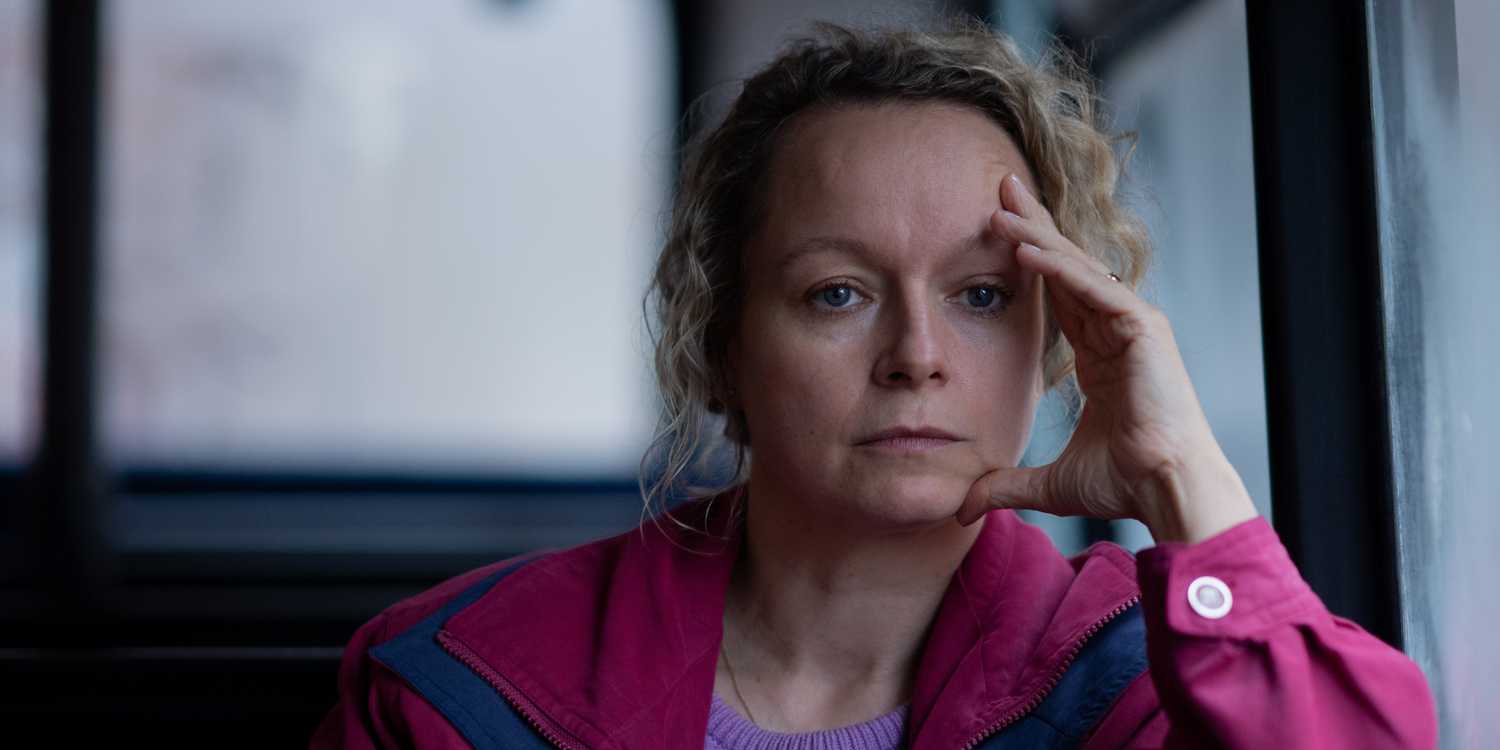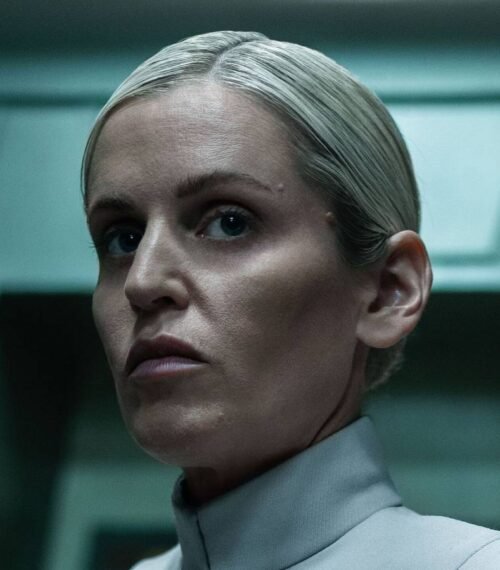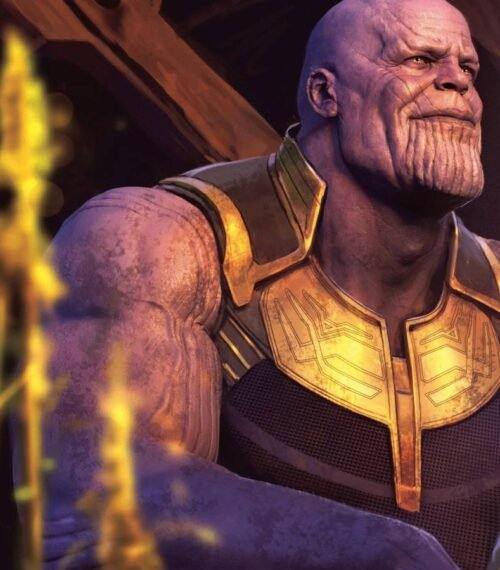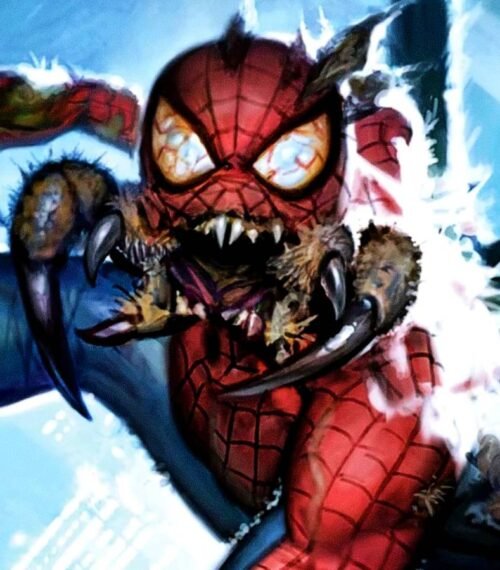Anemone is like recalling a memory; its sharpness dulled by a vagueness that blurs over time. Directed by Ronan Day-Lewis from a screenplay he co-wrote with his father Daniel Day-Lewis (who also stars as Ray Stoker), Anemone is an ambitious film about brothers, fathers, and all that’s said and isn’t between them. There’s a sense of violence that divides them, with Ray, who went off-grid years prior and now lives in the woods of Ireland, being called back by his brother, Jem (Sean Bean), to help Ray and Nessa’s (Samantha Morton) son, Brian (Samuel Bottomley).
Brian never knew his father, but he’s plagued by a brutality thought to have been Ray’s downfall, as well as the reason for his absence. Described as a psychological drama, the film drags its feet, laying out the outline of Ray’s confession in a drawing the camera pans over at the start, but that we don’t get until the last 15 or so minutes. Ben Fordesman's cinematography is stunning, replete with slow, intentional shots of the forest — trees of every shade of green swaying in the wind — and sharp close-ups of the actors’ faces.
Anemone Is Weighed Down By A Vague & Meandering Story
For his feature directorial debut, Ronan Day-Lewis is confident in laying out the story, mixing a rich visual palette with intriguing character beats. But what might have been good as a short film is somehow distended to the point of boredom. The story’s too vague, and the script’s refusal to indulge in the details for the sake of character development creates a pervasive coldness that the film can’t shake. It’s painting in broad, undefined brushstrokes that we can clearly see the shape of, but that keep us on the edge, unwilling to truly let us in.
Ray and Jem reunite after the latter goes to find the former, and we get snippets about their past lives and relationship, who they fought for — then and now — and what they’re haunted by. We’re meant to feel sympathy for Ray, but it’s actually Jem, who stayed with Brian and Nessa, and who held down the fort in his brother’s absence, with whom I felt for.
Anemone digs its heels in when it comes to the exploration of relationships between brothers and fathers and sons, but nothing much comes of it. We’re left adrift for the majority of the film, as though we’re waiting to be carried into the deeper end of the story, but nothing moves us to that point. At times, Day-Lewis’s film can be beautiful and haunting, containing a ferocious energy that is buried beneath an abstract, muted narrative.
The sad thing is that Anemone seems to have something to say about its core relationships, and yet it’s simultaneously hesitant to do any extensive digging. This is exemplified by the fact that Brian and Ray don’t share the screen until the final minute. It reads as a hopeful ending, but it’s baffling considering that Day-Lewis prolongs every scene and conversation to avoid getting to that moment. The result is a hollow, tiresome film that, despite its gorgeous cinematography and stellar performances, can’t connect with its audience and, at worst, might alienate them.












































































































